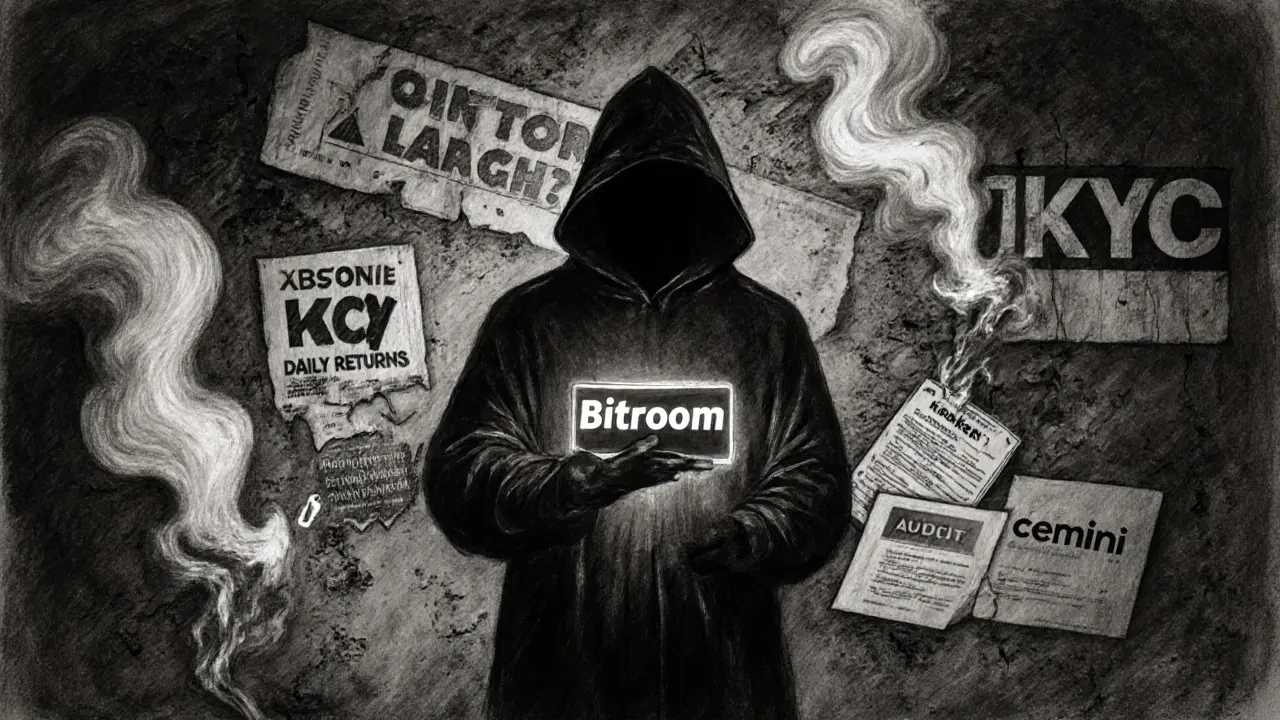Bitroom is not a legitimate crypto exchange - it's a scam. Learn how the fraud works, red flags to watch for, and where to trade safely instead.
Fake Crypto Platform: How to Spot Scams and Avoid Losing Your Crypto
When you hear about a new crypto exchange with 0% fees and 20% staking rewards, or an airdrop that promises free tokens just for signing up, fake crypto platform, a deceptive project designed to steal funds under the guise of legitimacy. Also known as crypto scam, it often has no team, no code audit, and no real users—just a slick website and a flood of social media ads. These aren’t mistakes. They’re carefully built traps. In 2025, over 60% of new crypto projects flagged by blockchain analysts had zero trading volume, no liquidity pools, and fake social media accounts. That’s not bad luck. That’s fraud.
Look at the posts here. Dexfin? No users, no volume, no tech. Zenith Coin airdrop? Ended in 2020—everything after is a copy-paste lie. Dynamic Trust Network? Zero circulating supply but a fake price on sketchy sites. Moonpot? No official airdrop exists. These aren’t isolated cases. They’re the same playbook: create urgency, promise impossible returns, vanish when money flows in. fake airdrop, a trick used to collect private keys or trick users into paying gas fees for non-existent tokens. And unverified exchange, a platform not listed on CoinMarketCap, CoinGecko, or any reputable tracker, often with no KYC, no withdrawal history, and no customer support. If it’s not on CoinMarketCap, it’s not real. If it’s not on Dune Analytics or DeFiLlama, it’s not tracked. If it’s not audited by CertiK or PeckShield, it’s not safe.
Real exchanges like Binance or Azbit have public team members, verified liquidity, and years of transaction history. Fake ones? They disappear when you try to withdraw. They use cloned logos from real projects. They copy-paste whitepapers from GitHub. They even fake Twitter followers and YouTube views. The red flags are simple: no verifiable team, no live trading, no community on Discord that’s actually active, and promises that sound too good to be true. crypto fraud, the deliberate deception of users through false claims about technology, returns, or security. It’s not complicated. It’s just profitable—for the scammers.
Below, you’ll find real reviews of platforms that turned out to be fake, airdrops that were never real, and exchanges that vanished overnight. No fluff. No hype. Just facts. Learn how to spot the next one before you send your crypto into the void.

